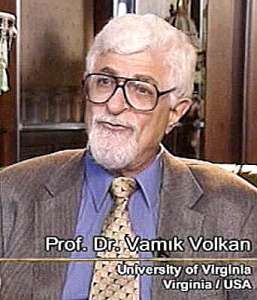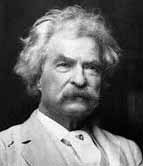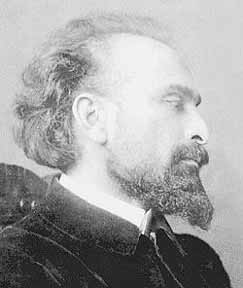|
|
Exactly what
are the psychological underpinnings that cause Armenians to, en masse, so
fanatically obsess over the "Genocide," and form their hatred of
Turks almost into a quasi-religion?
|
|
|
The
Genocide has been the single most fundamental issue defining the Armenians' identity
in this century. Its importance for Armenia and the Diaspora cannot be understated.
Vartan Oskanian
Minister for Foreign Affairs, Republic of Armenia
May 1999 |
PSYCHOLOGY WORKSHOP FOR ARMENAN FANATICS ON THEIR BEHAVIOR
Turkistan Newsletter Sun, 3 Feb 2002
Psychology of the Armenian incidents
Opinion by Gunduz Aktan
The main topic of the psychology workshop arranged during the Holocaust meeting held in
London University's SOAS center last weekend, was the Armenian incidents. I will try to
write something on this extremely complicated subject which is hard to explain and is on
the borders or even on the horizon of human sciences.
Let's put aside the historical, political and financial sides of the issue and 'who is
right, who is wrong' approach and let's try to look at it as human beings from the
standpoint of the Armenians. The majority of the Armenians was subjected to relocation
between 1915-1916. Families were dispersed. Wealth vanished. People died or were killed.
The remaining miserable mass took shelter in foreign countries. There is no doubt that the
incidents were full of personal tragedies.
It is natural for the people who faced this disaster, to hate us. Many
Turks, who were expelled from the Balkans and the Caucasus to Anatolia in a similar way,
must have felt similar feelings. But these Turks did not transmit their pain to the
following generations. They raised their children in a forward-looking manner since they
were contented with the significant portion of the land left in their hands although they
lost the places they called homeland. On the other hand, the Armenians lost almost their
entire homeland except a little portion. That's why it may be understood why they were
stuck in their past and losses.
The part that cannot be understood is important in terms of Turco-Armenian relations.
According to a panelist of the meeting Mr. L. Shirinian, the trauma of the Armenians still
continues since the Turks do not recognize the genocide. Our denial of the genocide pulls
them so much into the past that they cannot return to the future. Prof. Dadrian also said
similar things on this issue. It means that as long as we do not recognize the genocide,
it is impossible for the Armenians to put the past behind and look to the future. I do not
know of any other example for the depth of dependence of a society on its enemy, if I may
say so, to become normalized. Such a dependence may stem from Armenians' attribution to
Turkey of an identity of a 'father' who did wrong to his child instead of protecting him
as expected. And obviously this is not compatible with Turks' being a hate object of the
Armenians.
At this point, memory problem arises. What the first generation, which was subjected to
relocation, told to the following generations, constitutes the basis for genocide claims.
The memory of this generation depends on the spontaneous experience. But the third
generation, who received the bitter memories transmitted orally, should imagine the
incidents in their minds. In other words, internalizing the pain of the first generation,
the third generation has to reconstruct the incidents in their imagination that caused
this pain. At the meeting it was said that people could be very creative in this respect.
As a result, "every Armenian became his or her own historian."
Commenting on this point, a British psychoanalyst pointed out that humans have a genetic
memory, too. The savagery (that) happened during evolution lives silently in the depths of
our unconscious and leads us to exaggerate the memories of the disasters we faced in our
lives by contaminating them. If this is true, it is hardly possible for the Turks to
accept the responsibility of such an exaggerated past and "save" the Armenians.
An old British professor voiced in a very human terms that this psychology of the
Armenians would negatively affect their social dynamism. It was felt that the participants
of the panel understood the problem but were helpless to think of a solution.
Another speaker of the Panel Dr. D. Calonne indicated that grandmother figure was also
important in the writings of Saroyan, Najarian and Balakian, as it was in Alishan's poems.
The grandmother was the factor that transmitted the disaster to the following generations
and thus establishing a link with the past. The grandmother was "mad as her people's
history." Her madness passed onto her grandson. Calonne noted that the grandmother
gained the stature of "Magna Mater" as explained in the book titled "The
Great Mother" by Erich Neumann. Certain Jungians claim that this pre-monotheistic
figure reflected a very regressive characteristic and was close to madness.
Is it really possible to solve this problem?
Tune in on this page to see how the "grandmother" influence has
factored in with celebrity Armenian hard-liners.
|
The Best Description
|
Groups
need others to define themselves, in the process of which they learn how to hate
out-groups. Vamyk D. Volkan introduced the subject of the human need for enemies and
allies. He underlined that people sometimes have a psychological investment in the
continuation of a given conflict, and that they actually use them as external
stabilizers of their sense of identity andinner control. Not only do they have an
investment in the continuation of this enmity, but their militancy partly marks
their internal conflicts.
Since they need the enemy, they are afraid to lose it.
(Holdwater
comments: This is the best description [written by Dr. Türkkaya Ataöv] I have
run into, psychologically explaining the irrational hatred en masse, of the Turks,
by Orthodox peoples. The full version of the foregoing essay may be accessed here.)
|

|
|
Prof. Vamik Volkan, Univ. of
Virginia |
Prof. Vamik Volkan further elaborated in the documentary, "Sari
Gelin":
"Some of my Armenian friends... told me
about how from age two, as they're growing up and they are developing their
individual identities, they are also told that their identities are dependant on how
they are different from the Turks, and how they are victimized by the Turks. So that
their personal developmental identity and this identity's relationship with the
other, become almost a normal thing for them. Thus, when such a person becomes an
adult, he or she almost psychologically is obliged to be preoccupied with this type
of identity."
|
| [One of the main aspects of
Armenian] "national psychology... [is] to seek external causes for [Armenian ]
misfortune."..."One might think we found a spiritual consolation in the
conviction that the Russians behaved villainously towards us."
Hovhannes Katchaznouni, First Prime Minister of the
Independent Armenian Republic, The
Manifesto of Hovhannes Katchaznouni,1923, Page 8. (Holdwater:
After the Russians, it would be the turn of the French, the Americans, the British,
the Georgians, the Azerbaijanis — the whole world.) |
|
BORROWING FROM CHEKHOV
In this excerpt from a Mahmut Ozan essay, the professor sheds
light on motivating factors for both Armenians and Turks
|
WHY ARE WE THE WAY WE ARE? ISN'T SAM'S BOOK A NOBLE WAY TO CLEAR OUR NAME AND HONOR?
Mahmut Esat Ozan
The Turkish Forum
...It is not an easy task to be able to answer the questions displayed above. But as hard
as it may seem to be, a pragmatic soul-searching inquiry is quite appropriate and
necessary in order to reach an understanding on the subject: Why are we (Turks) the way we are? What makes us different from other
ethnic groups? This is a notion to be probed into, in order to find out why among many
diverse nationalities represented in the United States we Turks are, or at least appear to
be, the least cohesive group. Most of the other minorities living in the United States of
America are able to stay loyal to their own background, heritage, traditions, religion.
They literally eat, drink, breathe, live and stay a part of their overseas heritage,
legacy and/or patrimony. When it takes several decades for a Greek or an Armenian to slow
down from manifesting their national feelings, we Turks on the other hand lose our
identity and become assimilated within a short period of time. It is a proven fact that a
Turk melts away into the fabric of the new milieu in which he or she is located. Whereas a
Greek or an Armenian spends a small fortune to accommodate and facilitate the propagation
of their 'oneness', and always seems to be willing to spend all that it takes to continue
their struggle to defeat their adversaries, we Turks have the attitude, "Let Ahmet or
Mehmet do it"
As the famous Russian writer Anton Chekhov once said, and I am paraphrasing here: "What
unites most races, and keeps them together that way is not the manifestation of love, or
friendship, nor the respect they have for one another. It is the common hatred they feel
against their enemies." I guess part of our answer lies in this verity. It may be
that this lack of feeling of hatred against his fellow-men which engenders in us Turks, is
the essence of what makes us different from the others. It is a self-evident
characteristic manifestation which is admirable on the one hand and detrimental on the
other, when we need to come together and defend our name and even honor which are trampled
upon.
|
"The
Lemming Effect"
|
"They will even deny that which they
see with their own eyes. They are victims of a psychological affliction known as
'the lemming effect.'
|

|
|
Armeni-lemmings
identify
with this critter
|
Lemmings are small rodents who have been known
to follow each other as they charge to their deaths into raging rivers or off of
cliffs. Lemminghood is an innate psychological phenomenon, present in most mammals
and observable in common people as well the most sophisticated and educated elites.
Lemminghood is not an intellectual phenomenon — it is psychological. As such, no
socio-economic class is immune to its strangulating effect. A grant-seeking
university scientist can be a lemming just as much as a fashion obsessed teen-age
girl. One blindly follows the latest trendy theory while the other blindly follows
the latest trendy clothing style. What's the difference? Neither can resist the
force of nature."
Küfi Seydali; Original Source Unknown
|
| Nietzcshe, the philosopher, might have been onto
something when he pointed out weak (nations) do not call themselves weak; instead,
they prefer to describe themselves with such words as “victim” and "good.”
(It's more palatable when somebody feels pity for them, and potentially gives the kind
of free hand-outs the Armenians have thrived on.) |
On Identity Through Victimization:
(While the memory of suffering should not be
negated), "when a culture, ethnic, religious or national community bases its
communal identity almost entirely on the sentimental solidarity of remembered victim
hood, on the way lies historical myopia and, in extreme circumstances, even
vendetta."
(The problem is that this) "sense of
victimization impedes understanding among people; it cannot result in mutual
understanding."
Ian Buruma, The New York Review of Books,
April 8, 1999
|
|
Did
Mark Twain Know the Armenians?
|
Actually, the following are
excerpts from Mark Twain's The Mysterious Stranger (Ch. 9), where Satan
speaks about the human race... but doesn't it fit the Armenians, to a tee!
I know your race. It is made up of sheep. It is governed by minorities, seldom or
never by majorities. It suppresses its feelings and its beliefs and follows the
handful that makes the most noise. Sometimes the noisy handful is right, sometimes
wrong; but no matter, the crowd follows it. The vast majority of the race, whether
savage or civilized, are secretly kind-hearted and shrink from inflicting pain, but
in the presence of the aggressive and pitiless minority they don't dare to assert
themselves.
Monarchies, aristocracies, and religions are all based upon that large defect in
your race — the individual's
distrust of his neighbor, and his desire, for safety's or comfort's sake, to stand
well in his neighbor's eye. These institutions will always remain, and always
flourish, and always oppress you, affront you, and degrade you, because you will
always be and remain slaves of minorities.
Look at you in war ... how ridiculous!
The loud little handful — as
usual — will shout for the
war. The pulpit will — warily
and cautiously — object — at first (Holdwater:
Here, Twain's description doesn't quite apply; in the case of the Armenians, the
Armenian Church usually worked hand in hand with instigating the violence, along
with the fanatical leaders); the great, big, dull bulk of the nation will rub
its sleepy eyes and try to make out why there should be a war, and will say,
earnestly and indignantly, "It is unjust and dishonorable, and there is no
necessity for it." Then the handful will shout louder. A few fair men on the
other side will argue and reason against the war with speech and pen, and at first
will have a hearing and be applauded; but it will not last long; those others will
outshout them, and presently the anti-war audiences will thin out and lose
popularity. (Holdwater: Bull's Eye!)
|

|
|
Mark
Twain |
Next the statesmen will invent cheap lies,
putting the blame upon the nation that is attacked, and every man will be glad of
those conscience-soothing falsities, and will diligently study them, and refuse to
examine any refutations of them; and thus he will by and by convince himself that
the war is just, and will thank God for the better sleep he enjoys after this
process of grotesque self-deception. (Holdwater: Thank you,
Mark Twain!)
|
Sir Mark Sykes
Embellishes Mark Twain
|
The Caliph’s Last Heritage (London, 1915), pp. 409 and
416-18.
Sykes' observations on Armenian young men: (They inspired) "a
feeling of distrust, and their bearing is compounded of a peculiar covert insolence and a
strange suggestion of suspicion and craft...The keynote of town Armenian's character is
a profound distrust of his own coreligionists and neighbors."
"The Armenians will willingly harbor
revolutionaries, arrange for their entertainment and the furthering of their ends. The
pride of race brings about many singularities and prompts the Armenians to prey on
missionaries, Jesuits, consuls and European traveler with rapacity and ingratitude.
The poor Armenians will demand assistance in a loud tone, yet will seldom give
thanks for a donation. Abuse of Consular officers and missionaries is only a
part of the stock-in-trade of the extra-Armenian press."
"That the Armenians are doomed to be forever unhappy as a nation, seems to me
unavoidable, for one-half of their miseries arises not from the stupid, rangy,
ill-managed despotism under which they live, but from their own dealings with each other.
In a time of famine at Van, Armenian merchants tried to corner the valuable grain; the
Armenians Revolutionaries prefer to plunder their coreligionists to giving battle to their
enemies; the anarchists of Constantinople threw bombs with the intention of provoking a
massacre of their fellow countrymen. The Armenian villagers are divided against
themselves; the revolutionary societies are leagued against one another, the priests
connive at the murder of a bishop; the church is divided at its very foundation."
"Never were a people so fully prepared for the hand of a tyrant; never were a
people so easy to be preyed upon by revolutionary societies; never was there a people so
difficult to lead or to reform. That these characteristics are the result of Muslim
oppression I do not for one moment believe."
Sir Mark Sykes was recruited by Britain's propaganda
division, Wellington House, to write a fabricated report attacking the good image of the
Turks. He complied with "The Clean-fighting Turk, a Spurious Claim."
|
The
Burden of Memory
|
Below are excerpts from an
article entitled, "The Burden of Memory," appearing Sept. 3,
2004 in The Nation... revealing interesting psychological
insight. The author is Meline Toumani, who is near certainly of Armenian ancestry,
based on revelations in the last paragraph.
But the novelty of its narrative notwithstanding, The Burning Tigris cannot escape
becoming yet another artifact in what the young scholar Lisa Siraganian has called
"the fetish-culture of diasporan Armenians." In this culture, many
diaspora Armenians are reared to hate Turkey with a fervor that seems completely at
odds with their daily lives as typical — even liberal — American citizens.
Clothes with "Made in Turkey" labels are put back on the rack, Turkish
restaurants are avoided and a vacation in Istanbul is shunned by even the most
adventurous travelers. At Armenian summer camps and youth groups, third-generation
Armenian-Americans who don't speak Armenian and have never seen Armenia learn to
perpetuate this legacy. Many are descendants of genocide survivors, but often it
is the later-generation descendants who take up the cause most ardently, suggesting
that something besides a simple interest in justice fuels their behavior. In the
face of the distress of assimilation, the glory of a shared victimhood is
seductive indeed, especially when it can be attained without having actually
suffered.
Sociologist Anny Bakalian has called the quest for genocide recognition a sine qua
non* for the Armenian community in America. A literal
grasp of her words calls to mind a scene from George Steiner's controversial novel
The Portage to San Cristobal of A.H. In a provocative climax, Steiner's Adolf Hitler
character suggests that Jews should be grateful to him for having catalyzed the
fulfillment of the Zionist dream. A similar tragic paradox underlies the Armenian
situation: Without the shared sense of purpose afforded by the pursuit of Turkish
recognition, would the Armenian diaspora simply assimilate and disappear? In other
words, is Turkey's denial the diaspora's lifeblood?
(*: "An essential element or condition." Latin,
"without which not.")
================
After Armenia gained independence, the leading party, the Armenian National Movement
(ANM), under then-President Levon Ter-Petrossian, decided that genocide recognition
could not be a condition for Armenia's relationship with Turkey. "Obviously
this policy was not due to a lack of knowledge of history within the ANM,"
Libaridian writes, noting that Ter-Petrossian himself was a historian; his views did
not reflect "the absence of an appreciation of the significance of the
genocide" but a difference in "how to imagine the future."
Thus began what Libaridian calls "the battle for the soul of the new
republic." Ter-Petrossian was vilified by critics in the diaspora for his
refusal to give priority to genocide recognition, and for banning the ARF party, a
militant political group with strong diaspora ties. (My own memories of the
Ter-Petrossian years include stories of Armenian-American children chanting
"Death to LTP!" at ARF gatherings in suburban New England — LTP being
the preferred moniker of disrespect for the president among diaspora malcontents.)
(Holdwater: Result: the
curse of the Armenians, the terroristic Dashnak A.R.F., is currently in power within
Armenia. Just what John Roy Carlson/Arthur Derounian was afraid of, that this
immoral organization that has brought so much death and misery upon Armenians and
others would muscle in, and
take over the diasporan mentality.)
|
| From the Mouths of Armenians |
|

|
|
Varandian
|
Armenian Historian M. Varandian wrote of "the seed of the
poisonous flower of racism and nationalism... sown and carefully cultivated in the minds
of the (Armenian) youth." As a Dashnak, he found the above mostly
"justifiable." He also wrote (in the 1910 book, "The Rebirth of a Nation
and Our Mission," p. 144) that the Armenians' "cherished"
"national pride" "has also given rise to a rabid and delirious form of
nationalism." "It appears in the form of inordinate pride and arrogance,"
producing "scandalous excesses, obviously found in the most intense pleasure in
indulging in the most irreconcilable scorn and hatred of the Turks. 'The Turk is a
cretin!' 'The Turk is a mongrel!' 'Wherever the Turk rules there is rule and decay!'"
Rafael Ishkhanian, the activist, publicist and "ancient historian," echoes the
above revelations (in "The Law of Excluding the Third Force," in Gerard
Libaridian's Armenia at the Crossroads; Democracy and Nationhood in the Post-Soviet
Era, 1991, p. 10):
"[T]o curse at Muslims and especially at Turks, to talk much about the Armenian
Genocide, and to remind others constantly of the brutality of the Turks are all regarded
as expressions of patriotism. Among the leaders of the past we consider those who curse
Turks and killed Turks to be the most patriotic. Our most recent heroes are those who
assassinated Turkish diplomats in European cities... [this] is the dominant
mentality."
|
|